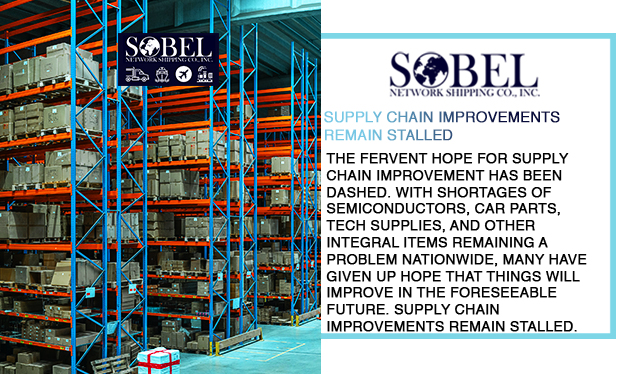The fervent hope for supply chain improvement has been dashed. With shortages of semiconductors, car parts, tech supplies, and other integral items remaining a problem nationwide, many have given up hope that things will improve in the foreseeable future. Supply chain improvements remain stalled.
Global Chief Economist of Citi Research Nathan Sheets stated, “Bottom line, we find that supply chain pressures have proved to be more persistent, and apparently deep-rooted, than we had expected even a few months ago, and the Russia-Ukraine conflict seems to be further amplifying the stresses. Given these realities, any hopes of near-term improvement in supply chain conditions have been shattered. The challenges in the months ahead look to be as acute as at any time over the past two years.”
Causes of Supply Chain Problems
Many things have caused supply chain bottlenecks such as labor shortages, inflation, and increased spending habits. Most believed that the pressures would ease once the Covid19 pandemic ceased being a pressing crisis. However, that has not happened.
Citi’s goes on to say, “To relieve the stress in global trade, we ultimately need to see an improvement in the pandemic. Some specific supply chain issues are beginning to unwind but there are still a number of lingering unknowns.”
Significant Supply Chain Issues Persist
The pandemic revealed significant problems with the global supply chain.
“Until the pandemic, the broad consensus was that supply chains were ‘optimized’ and functioning smoothly. Firms were thought to have broadly solved the riddle of how to keep inventories lean and simultaneously ensure a reliable flow of inputs for use in production. … Rather than a smooth predictable flow of demand, production, and transportation — the past two years have seen surging demand for final goods coupled with episodic disruptions in the availability of the inputs required to produce those goods.”


